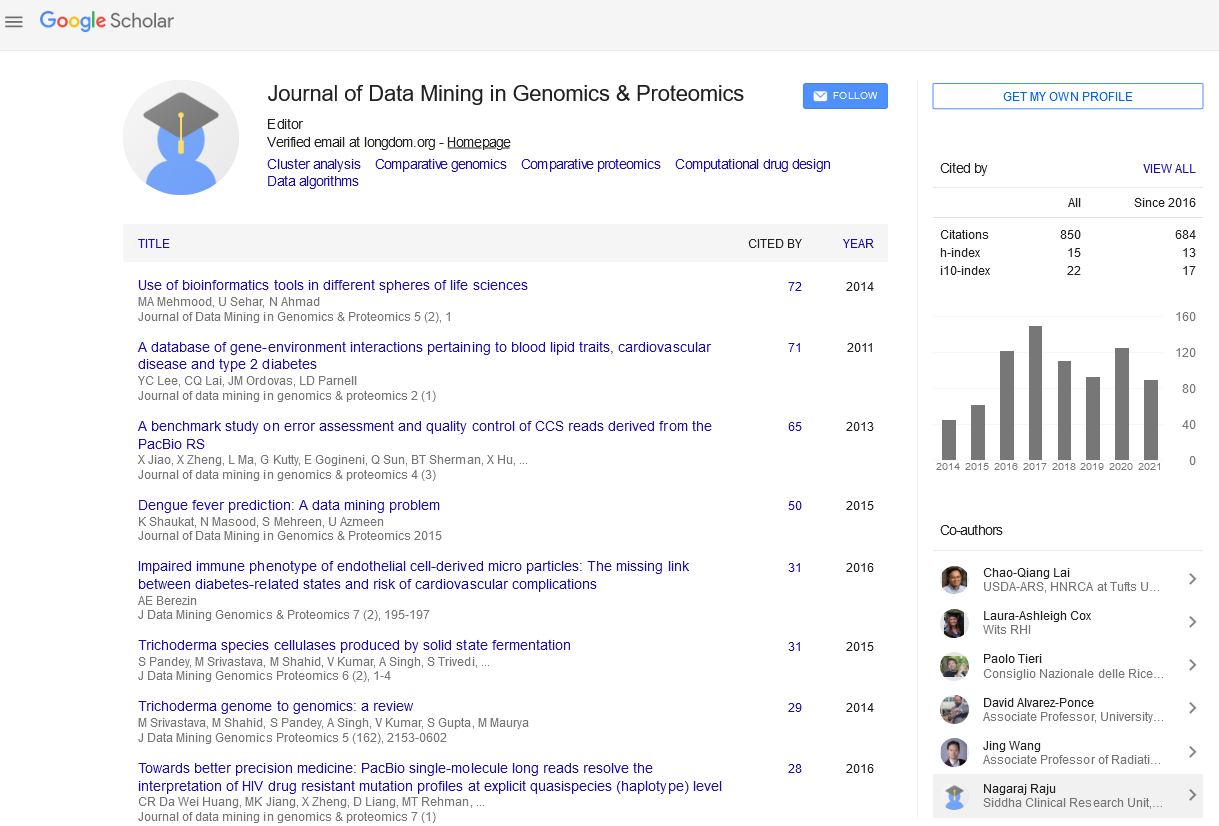PMC/PubMed Indexed Articles
Indexed In
- Academic Journals Database
- Open J Gate
- Genamics JournalSeek
- JournalTOCs
- ResearchBible
- Ulrich's Periodicals Directory
- Electronic Journals Library
- RefSeek
- Hamdard University
- EBSCO A-Z
- OCLC- WorldCat
- Scholarsteer
- SWB online catalog
- Virtual Library of Biology (vifabio)
- Publons
- MIAR
- Geneva Foundation for Medical Education and Research
- Euro Pub
- Google Scholar
Useful Links
Share This Page
Journal Flyer

Open Access Journals
- Agri and Aquaculture
- Biochemistry
- Bioinformatics & Systems Biology
- Business & Management
- Chemistry
- Clinical Sciences
- Engineering
- Food & Nutrition
- General Science
- Genetics & Molecular Biology
- Immunology & Microbiology
- Medical Sciences
- Neuroscience & Psychology
- Nursing & Health Care
- Pharmaceutical Sciences
Abstract
Vertebrate Arylsulfatase K (ARSK): Comparative and Evolutionary Studies of the Lysosomal 2-Sulfoglucuronate Sulfatase
Arylsulfatase K (ARSK) is one of 17 sulfatase gene family members encoded on the human genome for which a role has been recently identified as a lysosomal 2-sulfoglucuronate sulfatase. Vertebrate ARSK sequences shared 60-82% identity but only <27% identities with other arylsulfatase family members. Comparative enzyme structures were studied, including residues with predicted roles in forming N-glycosylation sites, Ca2+ binding and active site residues. Vertebrate ARSK genes usually contained 8 coding exons. A human ARSK gene promoter comprised CpG61 and multiple TFBS, which may be involved in signal transduction, transcription activation or regulating entry into cell division. Phylogenetic analyses examined evolutionary changes for the vertebrate ARSK and the invertebrate SUL1 genes. In summary, a major role for this enzyme as a 2-sulfoglucuronate sulfatase is supported which has been conserved throughout vertebrate evolution.


